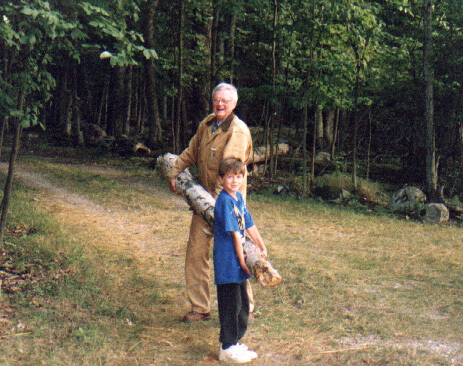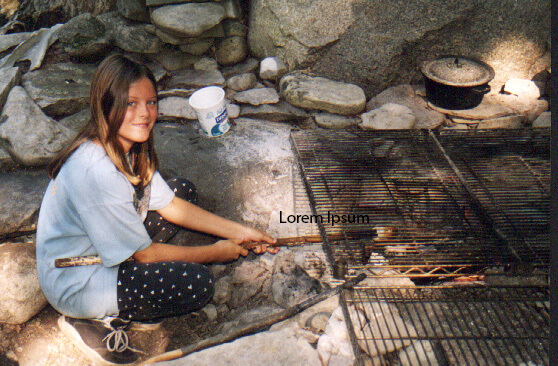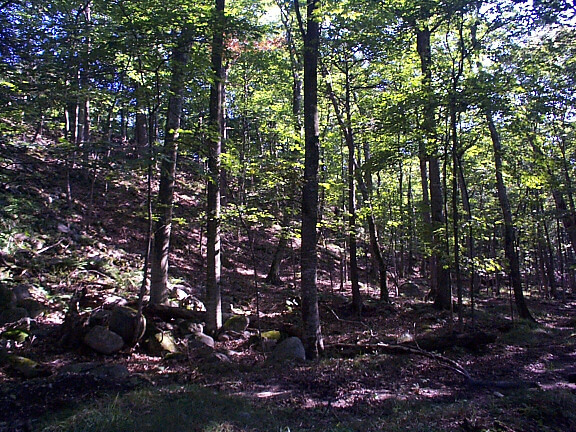A 40-Year Love Affair: Shuster Family Protects Lighthouse Point – Again!
From our Spring 2002 Newsletter
The year was 1963. Dick and Rosemary “Posy” Shuster were pregnant with their third child, and hadn’t taken a vacation in seven years. “We didn’t have a lot of money,” says Dick, a retired judge from Hastings, Michigan. “A friend told us we ought to go on up to the Leelanau State Park, and said, ‘Why, if you enjoy it, leave a contribution with George Anderson at the IGA there,” adds Dick. “That sounded good to me
The Shusters loved the peace and solitude at the tip of the Peninsula. Labor Day weekend, they went back, this time with a new baby and two other families in tow.
One afternoon, the men wandered off on a hike. They found themselves on a spectacular little peninsula, just a stone’s throw from the then-operational Gran Traverse Lighthouse. The Fox Islands lay before them; to the east stretched miles of rocky shoreline, strewn with Petoskey stones. On their way to the beach they’[d passed a hardwood forest filled with rare wildflowers and a coastal marsh flush with blue heron and songbirds. “It was like a little [piece of heaven,” says Dick.
On the way back to camp, the men spotted a for-sale sign. Dick was possessed with the thought of buying the land. He arrived at their tent and told Posy: “I’ve found something perfect for both of us.”
Posy had grown up summering on Lake Michigan and loved the wide-open expanse of the lake. Dick had spent his day son a busy river. “You can look at nothing but the lake,” he told his wife, “and I can watch the island and the freighters going past.” Later that day, Dick went to town to see about the property.
That was the beginning of a 40-year love affair with the land – a love affair that endures today. Over time, the Shusters would acquire 1,000 feet of shoreline, 23 acres – and two land contracts.
“I was a struggling young lawyer with three kids and a wife,” says Dick, “trying to start a country law practice.” When the land contract payments came due every year, inevitably he had to borrow the money. Somehow, they always managed to pay the loan payments. “We did it a dollar at a time,” says Posy.
What they got in return is decades of family memories spent camping on the land. Among them: digging a “bathtub” for the kids near the shore that would fill with lake water and be warmed by the sun. Roasting fresh sweet corn over a bonfire. Making dribble castles with the kids on the narrow strip of sand at the water’s edge. Collecting Petoskey stones.
Even when the Shusters could afford to build a home there, it was never in their plans. “One of my least favorite things in life is keeping house,” says Posy, “and I’m not about to do it on vacation!” She and Dick are adamant that the land be left just as they found it 40 years ago. “Our intention is for this place to remain natural for the critters and the plants and for our family to get away from an electronic world,” says Posie.
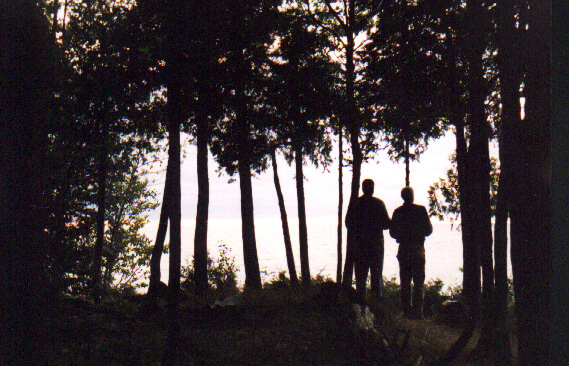
Six years ago (1996), with the help of the Leelanau Conservancy, the Shusters put about a third of the property into a conservation easement. This winter, they added another third. The rest of the land will also be permanently protected in their wills. The Shusters’ easement specifies that no structures may ever be built on the property.
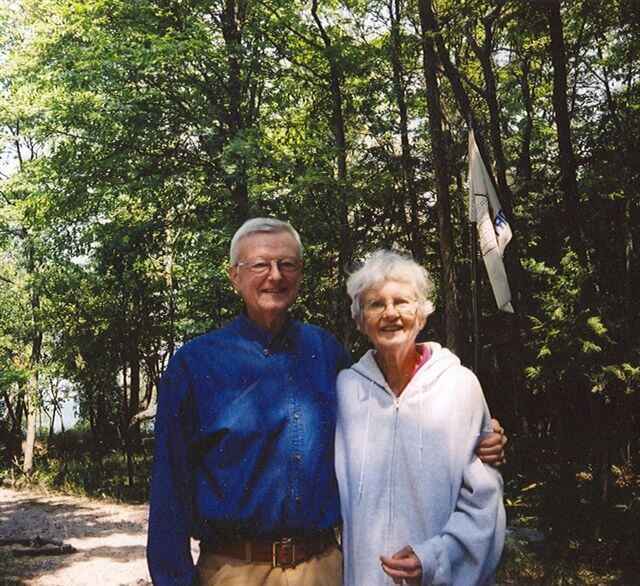
The tents of the old days have given way to a more comfortable motor home, and the Shusters come North with their kids and grandkids as often as they can. “We are so grateful to have the land,” says Posy, “and to be able to protect it. More and more, we see all the places we enjoyed as children and they are no longer open spaces. That is just devastating to us. One of the problems of the world, I think, is that people need to get away and look at life from a little farther distance. They need to be able to get to a place like this where life isn’t quite so instant.”
